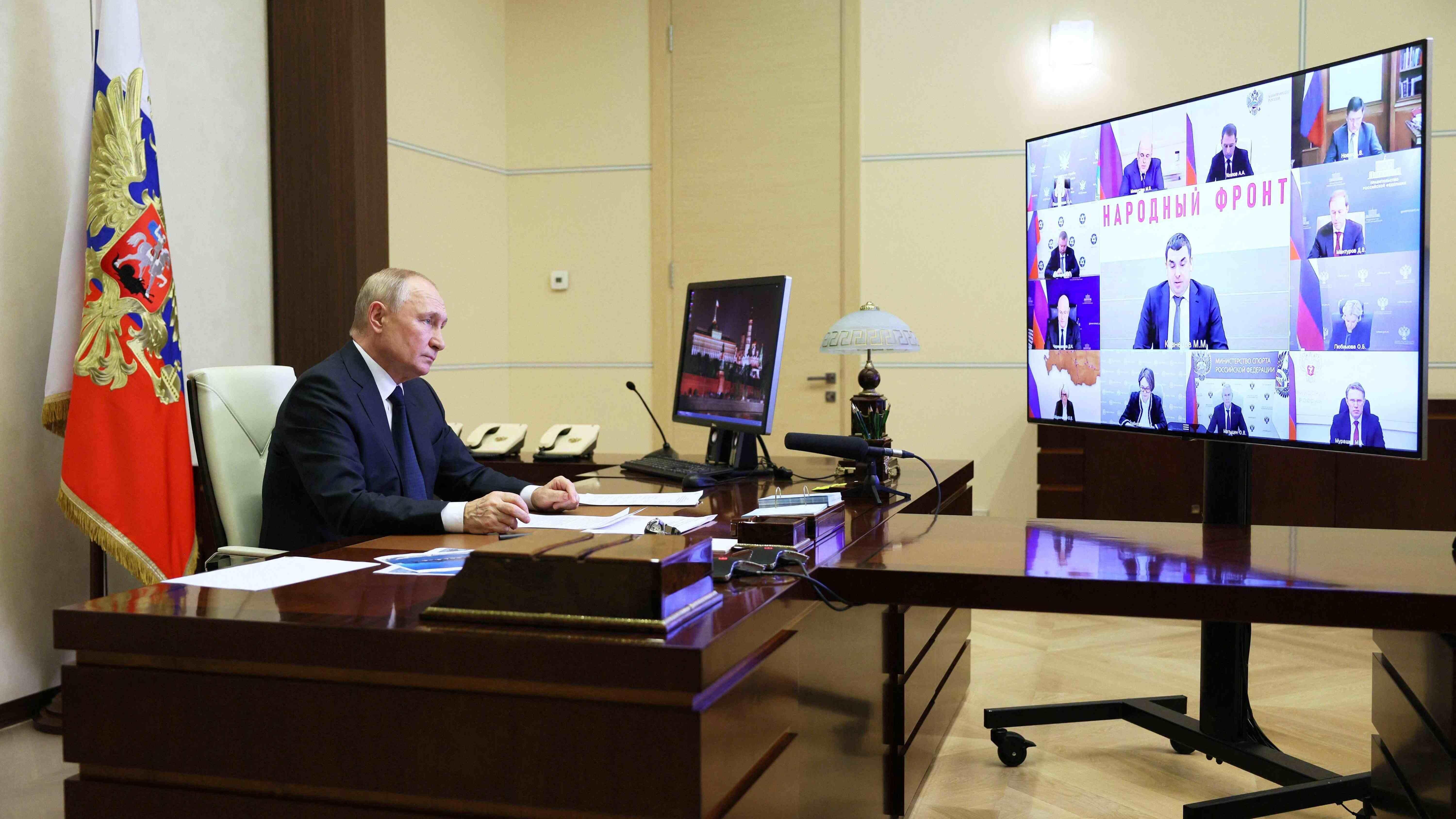Putin offers way for Russians to 'swap' frozen assets
MOSCOW

President Vladimir Putin signed a decree on Nov. 8 offering a way for Russian investors to "swap" their frozen assets abroad with the frozen assets of foreign companies in Russia.
Since the conflict in Ukraine, Western countries have introduced a barrage of sanctions against Moscow, blocking its banks from making international payments and freezing Russian assets abroad.
According to the Kremlin, more than $16 billion worth of foreign investments belonging to Russian citizens are now stuck abroad.
In response, Russia locked some assets belonging to foreign investors and companies in its country in so-called "Type-C" accounts.
According to the decree, Russian residents will be able to exchange their blocked assets abroad up to a value of 100,000 rubles (around $1,000) with funds from these accounts using a voluntary mechanism.
The owner of the Type-C account, which is nominally a foreign company, will then have the option of receiving the foreign share previously owned by the Russian investor abroad.
But there is no guarantee that foreign clearing houses Euroclear or Clearstream, which handle the exchange of shares, will co-operate.
Since the conflict in Ukraine began in February last year, dozens of Western companies have pulled out of Russia or sold their assets there to avoid falling foul of sanctions.
The Kremlin has made it difficult for foreign companies to make money on their sales, and in some cases has moved to take control of a company outright.
In July, Russia took control of the Russian subsidiaries of French yoghurt maker Danone and beer company Carlsberg, months after doing the same to Germany's Uniper and Finland's Fortum.
Meanwhile, The European subsidiary of Russia's VTB is changing its name after its parent refused to allow it to operate under the brand, an executive has said.
The Frankfurt-based bank, already ring-fenced by regulators due to sanctions and in liquidation since last year, will from now on be known as OWH SE, said Frank Hellwig, the chief executive officer of VTB's Europe hub.
Before Russia invaded Ukraine, VTB in Europe attracted tens of thousands of German savers with its relatively high interest rates and marketed itself as a sponsor of Frankfurt's ice hockey team, the Lions.
But after the war began, savers withdrew their money, resulting in a bank run and prompting regulators to manage the outflow. They took control in April 2022 after sanctions were imposed and the bank was cordoned off from Russia.
VTB still officially owns the European subsidiary, and Hellwig said he contacted the bank's Russia headquarters to get permission to continue under the name while a licensing agreement ran its course.
















